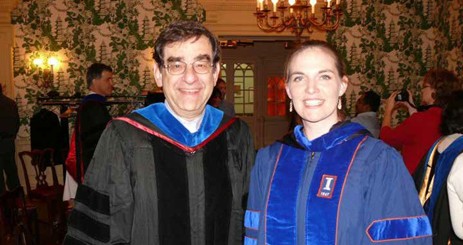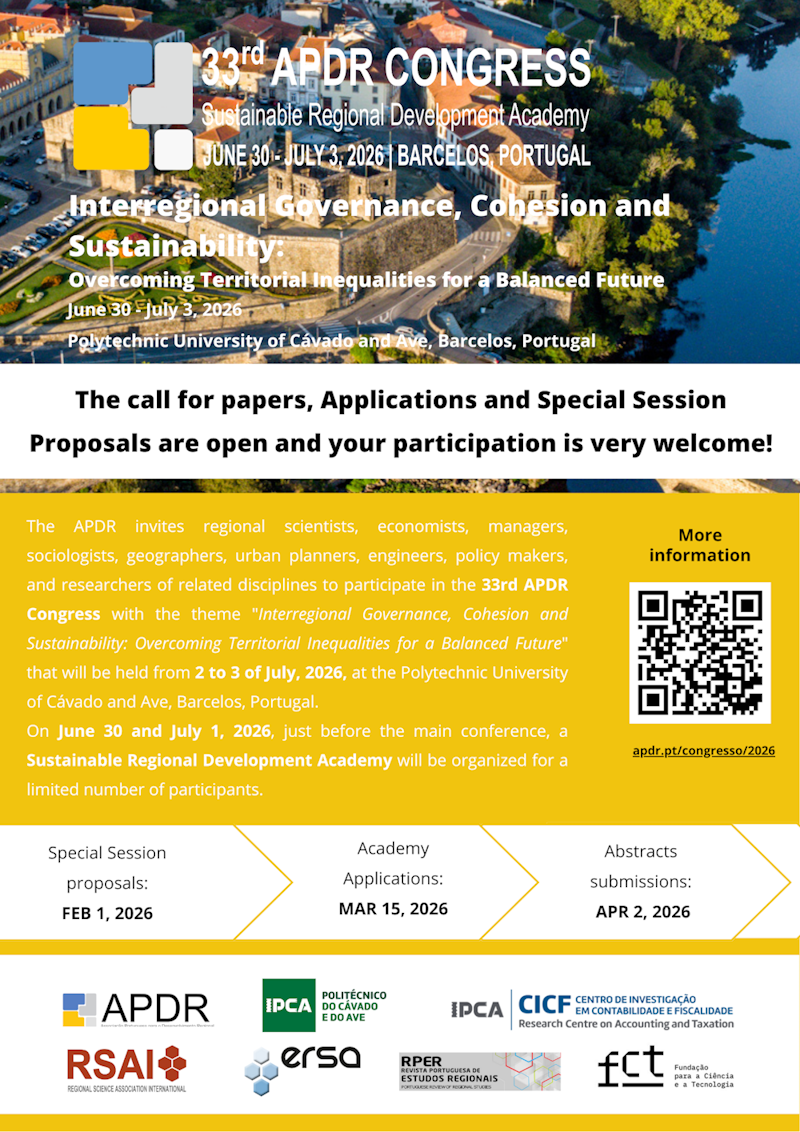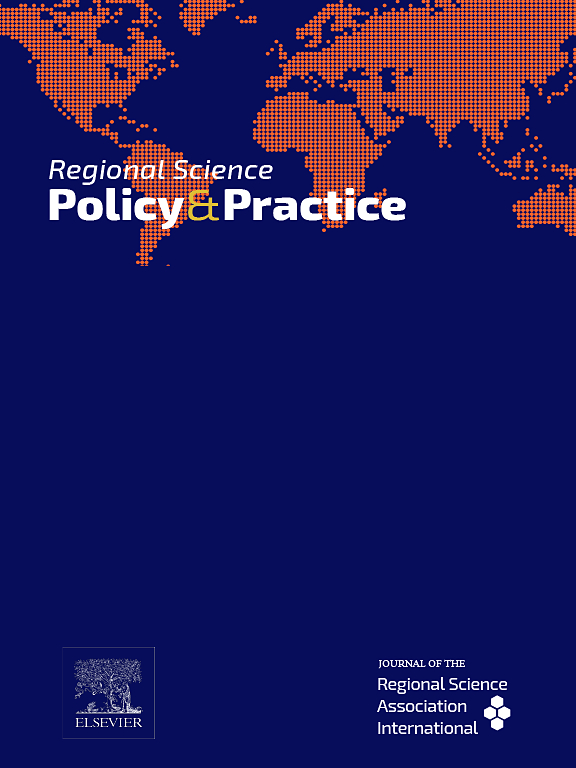Elisabete Martins
Call for Papers | 4th Annual Southern Africa Regional Science Association Conference, 22-24 July 2026, Namibia University of Science and Technology, Windhoek, Namibia
The Southern Africa Regional Science Association (SARSA), in collaboration with the Regional Science Association International (RSAI) and the Department of Land and Spatial Sciences at NUST, announces the 4th Annual Southern Africa Regional Science Association (SARSA) Conference 2026 Reimagining Regional Development Futures: Pathways to Inclusive, Resilient, and Sustainable Growth in Southern Africa
Conference Themes
The conference will specifically focus on the complex development challenges shaped by urbanisation, climate change, inequality, migration, and economic transformation. Regional development debates increasingly emphasise the need for inclusive and resilient approaches that can address structural inequalities while fostering competitiveness and long-term sustainability.
- Economic Resilience, Finance, and Regional Development
- Urbanisation, Infrastructure, and Sustainability
- Society, Labour, and Inclusion
- Poverty, Inequality, and Informality
- Transportation and Mobility in Urban Areas
- Governance, Policy, and Institutions
- Technology, AI, and Digital Futures
- Land Governance, Tenure, and Administration
- Land Use Planning, Property Markets, and Spatial Development
Conference Registration
- Early Bird Conference Registration Opens: 20 March 2026
- Late Conference Registration: 17 April 2026
- Conference Registration Closes: 30 June 2026
- Early Bird Registration: N$2 000
- Late Registration: N$2 500
- Students: N$1 000
- A discounted group rate will be considered for students or early- career academics submitting co-authored papers.
Submission Details
- Abstracts for papers should contain the purpose, objective(s), methods, findings, and implications/significance.
- Keywords (up to five) should be included.
- Full papers should contain an abstract, introduction, literature review, methods, findings and discussion, and conclusion.
- Papers and abstracts should be submitted online using this link (https://forms.gle/awxbMdER56YG1ewBA).
- Note that papers will only be accepted on the programme if the author/co-author will attend the conference
- If you have any questions relating to your submission, please contact Sam Mwando This email address is being protected from spambots. You need JavaScript enabled to view it., Elina Teodol This email address is being protected from spambots. You need JavaScript enabled to view it., Royal Mabakeng This email address is being protected from spambots. You need JavaScript enabled to view it. or Prof Eric Yankson This email address is being protected from spambots. You need JavaScript enabled to view it.
Important Dates
- Deadline for Submission of Abstracts: 31 January 2026
- Notification of Accepted Abstracts: 21 February 2026
- Submission of Full Papers: 30 April 2026
- Notification of Full Paper Acceptance: 21 May 2026
- Conference Dates: 22 - 24 July 2026
Call for Papers | 4th Annual Southern Africa Regional Science Association Conference, 22-24 July 2026, Namibia University of Science and Technology, Windhoek, Namibia
The Southern Africa Regional Science Association (SARSA), in collaboration with the Regional Science Association International (RSAI) and the Department of Land and Spatial Sciences at NUST, announces the 4th Annual Southern Africa Regional Science Association (SARSA) Conference 2026 Reimagining Regional Development Futures: Pathways to Inclusive, Resilient, and Sustainable Growth in Southern Africa
Conference Themes
The conference will specifically focus on the complex development challenges shaped by urbanisation, climate change, inequality, migration, and economic transformation. Regional development debates increasingly emphasise the need for inclusive and resilient approaches that can address structural inequalities while fostering competitiveness and long-term sustainability.
- Economic Resilience, Finance, and Regional Development
- Urbanisation, Infrastructure, and Sustainability
- Society, Labour, and Inclusion
- Poverty, Inequality, and Informality
- Transportation and Mobility in Urban Areas
- Governance, Policy, and Institutions
- Technology, AI, and Digital Futures
- Land Governance, Tenure, and Administration
- Land Use Planning, Property Markets, and Spatial Development
Conference Registration
- Early Bird Conference Registration Opens: 20 March 2026
- Late Conference Registration: 17 April 2026
- Conference Registration Closes: 30 June 2026
- Early Bird Registration: N$2 000
- Late Registration: N$2 500
- Students: N$1 000
- A discounted group rate will be considered for students or early- career academics submitting co-authored papers.
Submission Details
- Abstracts for papers should contain the purpose, objective(s), methods, findings, and implications/significance.
- Keywords (up to five) should be included.
- Full papers should contain an abstract, introduction, literature review, methods, findings and discussion, and conclusion.
- Papers and abstracts should be submitted online using this link (https://forms.gle/awxbMdER56YG1ewBA).
- Note that papers will only be accepted on the programme if the author/co-author will attend the conference
- If you have any questions relating to your submission, please contact Sam Mwando This email address is being protected from spambots. You need JavaScript enabled to view it., Elina Teodol This email address is being protected from spambots. You need JavaScript enabled to view it., Royal Mabakeng This email address is being protected from spambots. You need JavaScript enabled to view it. or Prof Eric Yankson This email address is being protected from spambots. You need JavaScript enabled to view it.
Important Dates
- Deadline for Submission of Abstracts: 31 January 2026
- Notification of Accepted Abstracts: 21 February 2026
- Submission of Full Papers: 30 April 2026
- Notification of Full Paper Acceptance: 21 May 2026
- Conference Dates: 22 - 24 July 2026
Appel à communications – Doctorales ASRDLF 2026 | Corte (Corse), 5-6 mars 2026
Appel à communications – Doctorales ASRDLF 2026 | Corte (Corse), 5-6 mars 2026
Les Doctorales ASRDLF 2026 se tiendront les 5 et 6 mars 2026 à l’Université de Corse, à Corte, et s’adressent à l’ensemble des doctorant·e·s et jeunes chercheur·e·s travaillant sur les dynamiques territoriales et régionales en sciences humaines et sociales.
Un moment privilégié d’échanges scientifiques, de retours critiques exigeants et bienveillants, et de dialogue interdisciplinaire autour des travaux doctoraux, dans l’esprit qui fait la force des Doctorales depuis leur création.
Deux conférences invitées exceptionnelles seront proposées cette année :
André Torre (Université Paris-Saclay, INRAE – AgroParisTech)
Ugo Fratesi (Politecnico di Milano)
Une séance plénière “Quelle vie après la thèse ?”, ainsi qu’une table ronde “Publier et valoriser ses travaux de thèse”, viendront compléter le programme scientifique.
Envoi des propositions : This email address is being protected from spambots. You need JavaScript enabled to view it.
Toutes les thématiques de la science régionale sont bienvenues, sans exclusive, quelles que soient les approches méthodologiques.
Portuguese Section: Call for Papers | 33rd APDR Congress, June 30-July 3, 2026, Polytechnic University of Cávado and Ave, Barcelos, Portugal
The APDR invites regional scientists, economists, managers, sociologists, geographers, urban planners, engineers, policy makers, and researchers of related disciplines to participate in the 33rd APDR Congress with the theme "Interregional Governance, Cohesion and Sustainability: Overcoming Territorial Inequalities for a Balanced Future" that will be held from 2 to 3 of July, 2026, at the Polytechnic University of Cávado and Ave, Barcelos, Portugal. On June 30 and July 1, 2026, just before the main conference, a Sustainable Regional Development Academy will be organized for a limited number of participants.
The theme “Interregional Governance, Cohesion and Sustainability: Overcoming Territorial Inequalities for a Balanced Future” underscores the growing importance of collaborative frameworks that promote equitable and sustainable development across regions. In the face of persistent territorial disparities, effective interregional governance emerges as a key mechanism for fostering cohesion, resilience, and shared prosperity. By integrating economic, environmental, social, and cultural dimensions, this approach seeks to ensure that sustainability is achieved not only within individual regions but also across territorial boundaries, paving the way toward a more balanced and inclusive future.
The call for papers and Special Session Proposals is open, and your participation is very welcome!
Deadline for Special Session proposals: February 1, 2026. Proposals should be sent by email to the Congress secretariat (This email address is being protected from spambots. You need JavaScript enabled to view it.).
Deadline for Abstracts submissions: April 2, 2026. Authors should submit their abstracts through the online submission system by following the link https://cmt3.research.microsoft.com/APDR2026
Deadline for Academy Applications: March 15, 2026.
All information available at the congress website: https://apdr.pt/congresso/2026/index.html
Looking forward to hosting you in Barcelos, Portugal!
The Organizing Committee and the Board of APDR
33rd APDR Congress
New Issue: Papers in Regional Science | Volume 104, Issue 6, December 2025
Articles
Book Reviews
|
New Issue: Global Challenges & Regional Science, Volume 4, December 2025
New Issue: Global Challenges & Regional Science
 |
Global Challenges & Regional ScienceVolume 4, December 2025 |
|
|
|
|
New Issue: Regional Science Policy & Practice | Volume 17, Issue 12, December 2025
|
|
Articles
|
|
|
|
|
|
|
|
|
Book Reviews
|
|
|
Special Issue Editorial
|
|
Sarah Low
 SARAH LOW, PROFESSOR AND head of the Department of Agricultural and Consumer Economics within the College of Agricultural, Consumer and Environmental Sciences at the University of Illinois Urbana-Champaign, has been named a Fellow of the Regional Science Association International — the highest honor in the field of regional science.
SARAH LOW, PROFESSOR AND head of the Department of Agricultural and Consumer Economics within the College of Agricultural, Consumer and Environmental Sciences at the University of Illinois Urbana-Champaign, has been named a Fellow of the Regional Science Association International — the highest honor in the field of regional science.
Low will be formally recognized at the 72nd Annual North American Meetings of the Regional Science Association International, taking place Nov. 12–15, 2025, in Denver, Colorado. This honor is reserved for scholars who have made outstanding and sustained contributions to the advancement of regional science, an interdisciplinary field that examines the spatial dimensions of economics, geography, and planning.
Low began attending meetings of the Southern Regional Science Association (SRSA) and NARSC in 2004 and was the late Prof. Andrew Isserman’s last PhD student. She was president of SRSA 2018-19 and serves as the Chair of NARSC in 2025. For almost 15 years, she has co-organized the Regional/ Rural Development sessions at NARSC. She was the opening keynote speaker at the 2024 RSAI World Congress in Kecskemét and an editor of ERSA’s Global Challenges in Regional Science journal.
“I’m deeply honored to be recognized by my peers in this way,” Low said. “Regional science has tremendous potential to inform policy and decision- makers, while strengthening communities. When we listen, collaborate, and co-create knowledge, we can generate insights that truly improve local economies and people’s lives.”
A hallmark of Low’s research and leadership is her focus on connecting economic science with real-world decision-making to support regional economic development. Drawing on her experience in the federal government, she emphasizes the importance of collaboration with stakeholders and policymakers to ensure that research delivers practical value to communities. Her work spans topics such as business dynamics, broadband impacts, rural household prosperity, value-added agriculture, and the development of entrepreneurial ecosystems.
Low’s recent publications highlight participatory research as a method to enhance both scientific rigor and community outcomes, including “Collaboration: A condition for Advancing Federal and State Rural Development Research”, “Rural Development: Perspectives from Federal and State Experiences with a Broadband Example” and “Integrating Research and Extension to Improve Community Participation in Broadband Projects.”

Sarah Low at graduation, with prof. Andy Isserman
Since August 2022, Low has served as professor and head of the ACE department in the College of ACES. As department head, Low continues to champion engagement and collaboration to deliver on the college’s land-grant mission, driving research that addresses pressing societal needs. Previously, Low held the Fred V. Heinkel Chair in Agriculture at the University of Missouri, where she served as the inaugural director of the Rural and Farm Finance Policy Analysis Center, and a University of Missouri Extension specialist in regional economic and entrepreneurial development. Before entering academia, she spent a decade at the U.S. Department of Agriculture’s Economic Research Service in Washington, D.C.
“Sarah’s leadership embodies the spirit of our land-grant mission — translating academic insight into real-world impact,” said Germán Bollero, dean of the College of ACES. “Her recognition by RSAI affirms both her global influence and Illinois’ enduring strength in advancing regional science.”
Low earned her bachelor’s degree from Iowa State University, master’s degree in agricultural economics from Purdue University, and doctorate in agricultural and consumer economics from Illinois, which has produced an outsized number of RSAI Fellows over the decades, reflecting the university’s leadership in shaping this discipline.
Adapted from ACES News, University of Illinois Urbana- Champaign, with permission. Original article: “Sarah Low Named Fellow of the Regional Science Association International.”
(Published on RSAI Newsletter 2025 November)
RSAI Newsletter (November 2025)
Dear RSAI members,
I hope this email finds you well.
In the following link you can read the newest issue of the RSAI Newsletter (download).
Enjoy the read, and please do not hesitate to get in touch with Martijn (This email address is being protected from spambots. You need JavaScript enabled to view it.) and Mina (This email address is being protected from spambots. You need JavaScript enabled to view it.) if you would like to propose new material, ideas, researchers to interview, etc. for the next newsletter.
I would like to take this opportunity to remind you that Regional Science events (conferences, seminars, workshops, summer schools, awards, etc) organized by the RSAI National Sections or the RSAI Supranationals (NARSC, LARSA, ERSA, PRSCO) are regularly announced in the NEWS of the RSAI web page (https://regionalscience.org/) and also for convenience in the events calendar (https://regionalscience.org/index.php/news/events-calendar.html)
Kind regards,
Dr Ana Viñuela
RSAI Executive Director
Associate Professor, Applied Economics Department
REGIOlab, University of Oviedo, Spain
European Project EXIT (https://www.exit-project.eu/)
Call for Applications | Higano Award for Outstanding Service to PRSCO 2026
Call for Applications
Higano Award for Outstanding Service to PRSCO 2026
We are pleased to announce that we are now accepting applications for the Higano Award for Outstanding Service to PRSCO 2026 (the Higano Award).
Please submit your nomination along with the nomination form to the PRSCO Secretariat by January 31, 2026 via email <This email address is being protected from spambots. You need JavaScript enabled to view it.>.
For more information on this award, please see (PDF).
The Pacific Regional Science Council Organization (PRSCO) annually presents the Higano Award for outstanding contributions to PRSCO. The award recognizes a member or friend of PRSCO ( individual person) who has made an outstanding long-term contribution to the development and organization of regional science, particularly in the Asia-Pacific region and internationally beyond the regional level, and may be presented to up to two individuals each year on a calendar year basis. The recipient will be presented with the award by the PRSCO President or his/her nominee at the PRSCO 2026 in Australia.
http://www.ab.cyberhome.ne.jp/~soushi-s/PRSCO/PRSCOAwards.html#Higano
About Us
The Regional Science Association International (RSAI), founded in 1954, is an international community of scholars interested in the regional impacts of national or global processes of economic and social change.













